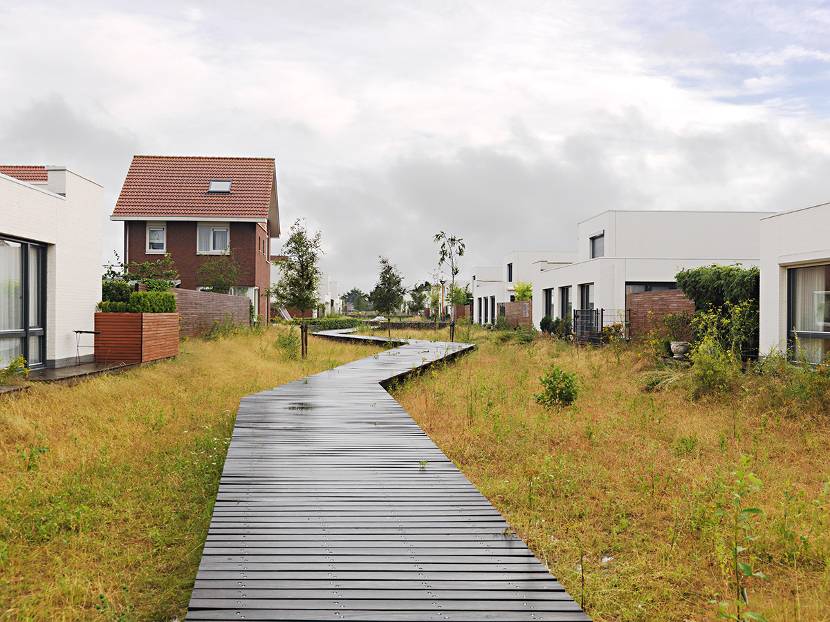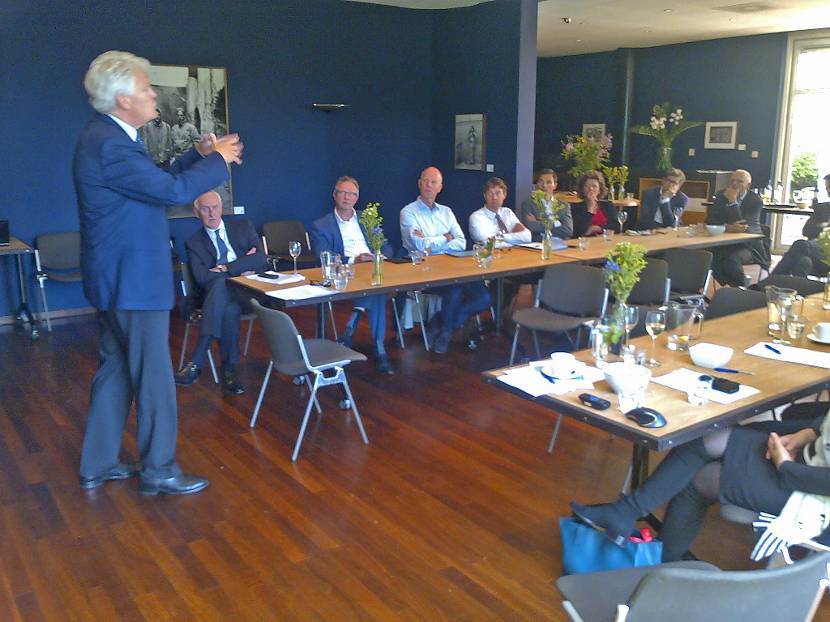Delta Commissioner advocates that more attention be paid to “water in the city”
On 3 June, in a speech at the Amsterdam navy yard during the annual meeting of the Forum voor Stedelijke Vernieuwing (Forum for Urban Renewal) Delta Commissioner Wim Kuijken advocated that much more attention be paid to water-related issues in urban policy. Extreme weather is becoming ever more common due to climate change. Sudden torrential downpours can result in flooding and cause damage, as was the case in Amsterdam last year. In addition, long spells of high temperatures can lead to health problems in cities. The theme of “Water” is one of the key concerns in the 2016 programme of the Forum for Urban Renewal.

The Delta Commissioner is calling on all stakeholders, local authorities, housing associations, water boards, developers, architects and members of the public to become involved in tackling this daunting task. Gardeners and garden centres also have a role to play. Taking simple measures in gardens is already frequently reducing flooding, or even preventing it.
The figures in the Gemeentelijke Barometer voor de Fysieke Leefomgeving (Municipal Barometer for the Physical Living Environment) which was presented on 2 June, show that 83% of Dutch municipalities regard flooding due to heavy rain as their most urgent climate problem. This finding strengthens the Delta Commissioner’s argument.
Wim Kuijken was presented with the first copy of the report. In the annual Delta Programme, which is released on Prinsjesdag (the state opening of parliament in September) the Delta Commissioner sets down proposals for a new approach to spatial adaptation in which climate adaptation in cities and towns is a major focus area. He also provides an annual progress report. The Delta Programme was launched in 2010.
Last year, during the presentation of the “Delta Plan for the 21st Century” on Prinsjesdag, Dutch municipalities and other authorities signed the Delta Programme administrative agreement. The document also contains agreements on spatial adaptation. Alongside water safety and the fresh-water supply, spatial adaptation is the third objective set down in the approach aimed at having our country better equipped for the future by 2050. ‘A large number of measures along the coast, rivers, the IJsselmeer and in cities are focused on making our low-lying homeland more robust and resilient, and thus better able to cope with the extremes of nature,’ according to the Delta Commissioner. He is offering all stakeholders a set of instruments for tackling this enormous task.
Measures for urban areas can be combined with water-safety measures in coastal cities and cities along rivers. Good examples of this include the boulevard in Scheveningen, where the Randstad’s primary flood defence has been integrated into the boulevard; river widening in Lent near Nijmegen, where a new urban development is being realised by constructing an “Île de la Cité” in the Waal, and the car park in Katwijk which has been incorporated in the dike as part of the coastal defence system.
